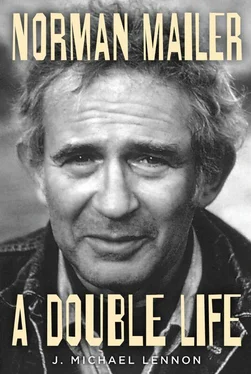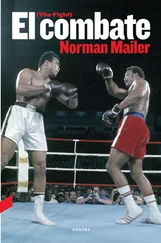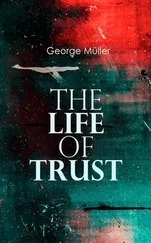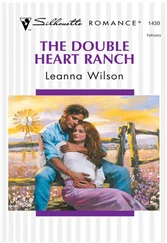Mailer’s and Lubin’s parents had gotten to know each other a bit in Brooklyn and Mr. Lubin drove the boys up to Cambridge on September 16, 1939. Later, Fan Mailer and Eva Lubin would occasionally take Saturday night train trips to Cambridge bringing cookies and clean laundry to their sons, returning late Sunday and arriving in Brooklyn as the sun came up. For his college wardrobe, Mailer had purchased an outlandish set of clothes that could have been worn with Charles Bovary’s infamous hat: green and blue vertical striped trousers, a gold and brown jacket, and saddle shoes. These garments were quickly discarded once he observed the narrow-lapeled tweed jackets and gray flannel trousers of the other students. Mailer said later that in going from Brooklyn to Harvard he felt like “a young man going from a small town in the Caucasus to Moscow for advanced studies.”
“Unformed” is the word Mailer used to describe himself as a first semester freshman. We can add unprepared; Harvard was a shock and at first he drew inward. Kaufer later said that his new roommate was quiet, pleasant, “a smiler” who didn’t venture out much during his first semester, unlike his gregarious roommates. One thing that his classmates all seem to remember about Mailer as a freshman is the collage of pinups over his desk. We know that one of them was a George Petty centerfold from Esquire , signed salaciously by his buddies, because Mailer wrote home to give his parents fair warning of its placement before their first visit. Betty Grable’s legs were probably included and there was also a photograph of Amy Arnell, a vocalist in the Tommy Tucker big band; her big hit was “I Don’t Want to Set the World on Fire.” When the band had appeared in Long Branch in the summer of 1939, Mailer was much taken by a large, framed photo of Arnell in the lobby of the West End Hotel. Wearing a tool belt and work clothes, he brazenly unscrewed the entire frame containing Arnell’s photo and walked out with it. A friend from Long Branch remembers seeing it in his Harvard room. There were bull sessions about sex, of course, and he discovered that he had “a bunch of roommates who also hadn’t been laid…. We’d heard of working-class kids who got laid when they were 13 or 14. Here we were, good middle-class kids, and we weren’t able to get laid…. You bore a standard of shame.”
The required courses for his first semester were an engineering drafting course, physics, and the first halves of math and English courses. His sole elective was French. The English course, English A, was a composition course, required of all students who did not turn in an outstanding performance on the English exam taken by new freshmen. In Mailer’s time, students in English A had to write a variety of descriptive and argumentative themes, often in response to assigned readings in collections of essays and short stories and, later, novels. At first, he did not like the course, writing home on October 25 that the course was “about the dullest.” But when he read the contemporary novels assigned, his interest not only sharpened, he said, the novels changed his life.
Before I was seventeen I had formed the desire to be a major writer, and this desire came upon me rather suddenly in the last two months of my sixteeth year, a time I remember well enough because it was my first semester at Harvard. All through December 1939 and January 1940 I was discovering modern American literature. In those sixty days I read and reread Studs Lonigan, U.S.A. , and The Grapes of Wrath. Later I would add Wolfe, Hemingway and Faulkner, and to a small measure, Fitzgerald; but Farrell, Dos Passos and Steinbeck were the novel for me in that sixty days before I turned seventeen.
Of the three books that Mailer names, James T. Farrell’s Studs Lonigan trilogy, set on the South Side of Chicago in the early part of the twentieth century, was at first the most influential. For the rest of his life he said that Farrell had awakened him to his vocation. What Farrell provided was the recognition that the social atmosphere of Brooklyn was similar to that enveloping the lower-middle-class Irish toughs that Farrell chronicled. It was liberating, Mailer wrote, to find a novelist who could write about “the monotony and the boredom, and the killing deadness of the average simple life among many people who were not well educated.” Until he read Farrell, Dos Passos, and Steinbeck, the novels he prized were stories of the romantic past or the imagined future; he had no sense that the stumblings and longings of his pals at the candy store and the burlesque house were the stuff of fiction. “Suddenly,” he said, “I realized you could write about your own life.”
During his first semester, the struggle to keep up with his courses was wearing him down. Several weeks into the semester, he was cut from the 150-pound crew team. It was, he said, “the bitterest blow freshman year,” salved only slightly when he learned from a friend that the coach never had the slightest interest in him because his arms were too short. The other disappointment was women: he had no dates until he returned home for the Christmas holiday and saw Phyllis Bradman, taking her to a New York Rangers hockey game. But on New Year’s Eve he had no date, and went skating in the afternoon and to a burlesque show. Back at Harvard for semester exams in late January, he realized that physics was too much for him and he dropped it early in the second semester. He was maintaining As and Bs in his other courses, including English A, where the instructor had informed the class that short stories could be submitted in lieu of topical essays. Mailer, who once said, “I threw down my pen at 11,” began writing fiction again.
He also looked into the possibility of getting on The Harvard Lampoon , but he was rejected. The Lampoon was dominated by students with prep school pedigrees. “I can’t write humorously,” he told his parents, and also noted the Lampoon ’s $100 initiation fee. Then, on February 12, 1940, he attended an open house put on by the Advocate, the college’s venerable literary magazine, founded in 1866, among whose contributors were T. S. Eliot, Wallace Stevens, Marianne Moore, and Henry Miller. At the meeting, he met Bruce “Pete” Barton, also a freshman and the son of a prominent advertising executive and congressman from Manhattan’s Silk Stocking district. Mailer was attracted to the quiet, well-mannered young Barton. “He was the first man I met who was the son of a very powerful man, a tycoon. And he was also very much a gentleman,” he said. Barton was drawn to Mailer not only for his literary interests but because he felt the Brooklynite could tell him about life outside his pampered existence. The next day, Mailer wrote to his parents to say he was trying out for the magazine and ask if they would pay the $40 initiation fee. They gave their enthusiastic assent in a telephone call and he began assembling the required three-piece application packet.
Also in February, he took two additional steps in pursuit of his ambition: he accepted an invitation to join a weekly, extracurricular writing seminar, and he began keeping a notebook, the first of innumerable such records he kept for the rest of his life. Not much is known about the seminar save an anecdote from his friend Larry Weiss, a sophomore transfer student, who had considerable influence on him. Weiss recalls that Mailer argued for the importance of writers describing every bodily function, including bowel movements. Weiss said he had no problem with such descriptions, but it was wrong to call them literature. Mailer responded by reading aloud from the “Calypso” chapter of Ulysses, Joyce’s account of Leopold Bloom in the outhouse.
The pocket-sized notebook of thirty-odd pages contains one-sentence character sketches and two-sentence plot ideas, memorable people, places, and moments, a list of his dates with girls in Brooklyn, with telephone numbers and a letter grade next to each (Phyllis Bradman got a B, the highest), snippets of conversation and quotations from several writers, including Hemingway (“Everybody was drunk”). Some of the ideas are the usual freshman theme fodder: tearing down the goalposts after a football game. But others are more ambitious: a boy with a castration complex, based on a line from Havelock Ellis’s Studies in the Psychology of Sex ; a young white man dancing with a black woman for “altruistic reasons” who gets sexually aroused; “fellow meeting mother long lost and finding she is a prostitute[;] you know that’s crap have him lay her first then find out it’s mother — don’t give it away but have it sharp dialogue piece”; “a homosexual who has an otherwise fine character… have it from an accident.” A significant number are pensées about the writing life: “It is only when an author reproduces some personal experiences of ours that we can fully understand his meaning.”
Читать дальше












